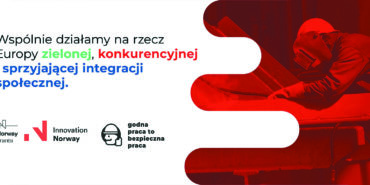What is the importance of work-life balance?
Despite intensive changes in the modern world, contributing to the improvement of the quality of life, as well as its „facilitation”, e.g. through new technologies, reconciling work and life, including family life, personal (WLB), is becoming an increasingly common problem. One of the reasons for the „mismatch” of work with life and vice versa is the way modern man lives and works, who tries to meet the growing demands, both at work and outside it.
A very important aspect when considering the problem of reconciling work and life is the age of the employee. In the human life cycle, his roles (life, social) change, and with them the duties resulting from them. In the case of young people, these are obligations resulting from caring for young children, while among older people (50+) these are caring responsibilities towards their own children growing up, grandchildren, aging parents and other chronically ill/disabled people. Sometimes among people over 50 years of age, there is a burden of caring for both grandchildren and elderly parents.
On the other hand, the „work-life conflict” can manifest itself in two ways: first, work can have a negative impact on life (including, above all, family-personal, work-family conflicG, WFC), second, life can have a negative impact on work (family-work conflicG, FWC).
In the group of younger employees (up to 49 years of age), the fact of caring for the youngest children deserves special attention, which is often associated with partial or complete resignation from work or the use of parental leave. The vast majority of this situation concerns women.
Any burden resulting from the requirements of the environment is related to the effort expended to cope with these requirements. The demands that cause the effort activate many psychophysiological adaptive reactions in the human body (increase in heart rate, muscle tone, increased secretion of stress hormones, etc.). The factor enabling the adaptation of these reactions is the regeneration of the body after exercise. If it is lacking or insufficient, the so-called negative reaction to the load develops.
The quantity and quality of free time is important for general well-being, which, apart from health, brings many other benefits: commitment to professional work, better efficiency at work, satisfaction with it, affects career development, and indirectly allows you to maintain employment.
Combining work and care, according to older respondents, would be greatly facilitated by: the possibility of working from home (approx. 50%), the possibility of shortening working hours (approx. 45%), the possibility of changing working hours (approx. 38%), the possibility of leaving work for at least an hour (approx. 40%).
Effective work-life balance policies and practices can have a positive impact on both employers and employees; As a result, lead to: maintaining employment, increasing the level of motivation, greater productivity, reducing absenteeism and stress, protection against the loss of employees to competition, improving the functioning and image of the company and improving the quality of life of employees.
From the employee’s point of view, effective implementation of activities in the area of easier reconciliation of work and life can contribute to the improvement of his psychophysical health, general well-being, improvement of his effectiveness, both in the sphere of professional work and outside it.
Among the many different possibilities for effectively reconciling work and life, we can distinguish basic organizational principles that favor a better fit between these two spheres. These are: childcare organization, care for the elderly, parental leave for working mothers and fathers, incentives for fathers to increase their participation in family life, flexible working arrangements.
Source – CIOP and PIB materials
Source: https://www.seka.pl/rownowaga-praca-zycie-prywatne/

Projekt otrzymał dofinansowanie z Norwegii poprzez Fundusze Norweskie 2014-2021, w ramach programu „Dialog społeczny – godna praca”.




